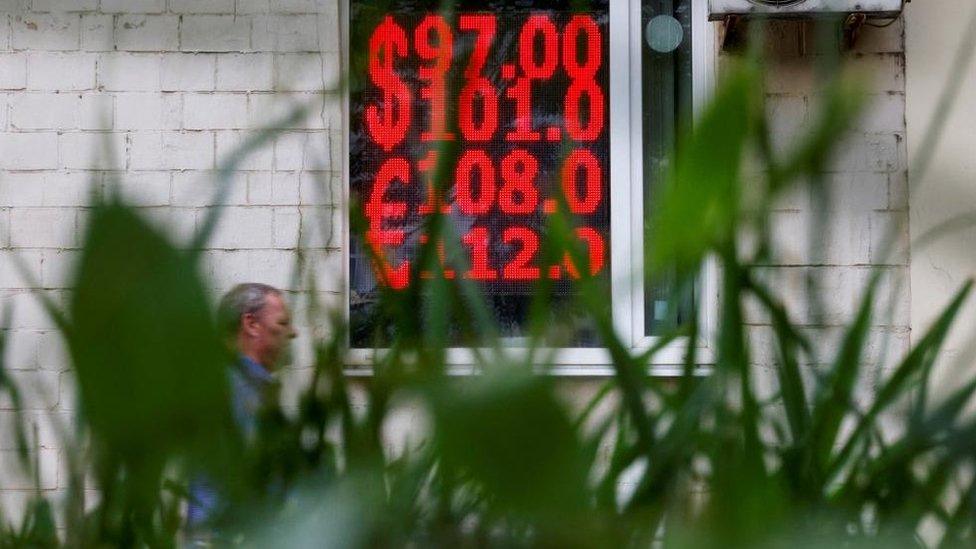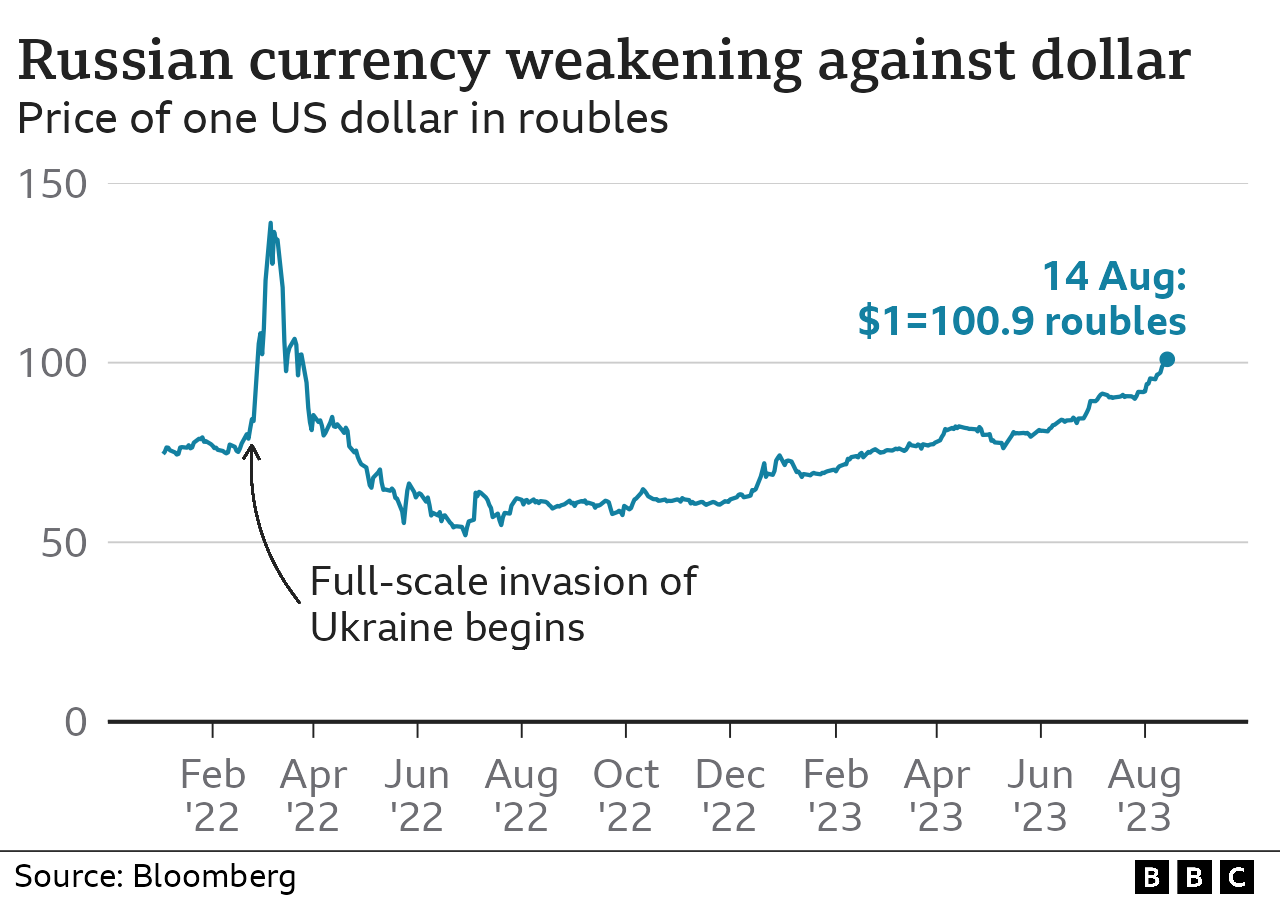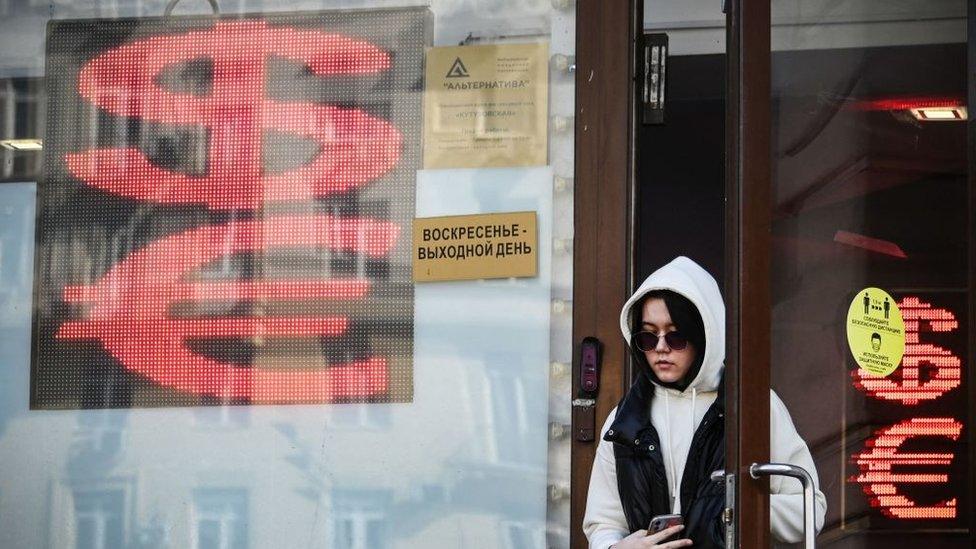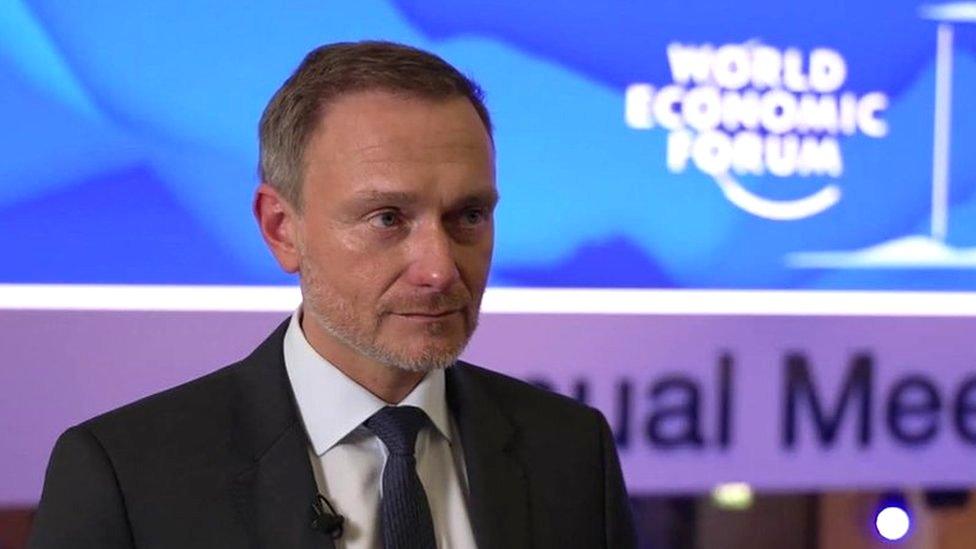Russia rouble: No panic but currency fall will hurt
- Published

If you switch on Russian state TV today, you'd be forgiven for thinking that the Russian economy is booming.
A presenter on the Rossiya-24 channel did admit that the dollar exchange rate had reached an eye-watering 101 roubles - but, he went on to insist, the Russian economy was still doing marvellously well. Russian GDP - up! Oil and gas revenues - growing!
And in today's copy of Komsomolskaya Pravda, the biggest-selling daily newspaper in Russia, an article on page 3 declared: "The Russian economy takes a sharp upward turn."
But the plummeting rouble will still hurt.
It is now at its lowest for 16 months. Pressure is growing on the Russian economy, as imports increase faster than exports and military spending grows.
Economists say it will likely lead to inflation. Foreign travel will become more expensive to ordinary Russians. One travel agency owner in Moscow told me he expected many clients would now opt for taking a holiday inside Russia, instead of travelling abroad.
But going overseas was already very problematic for people here - Western sanctions against Russia's aviation industry make foreign travel very difficult. Many countries have stopped issuing visas for Russians, and financial restrictions mean their bank cards don't work in the vast majority of foreign countries.
Admittedly, Russia has been here before - the rouble fell steeply after the full-scale invasion of Ukraine. But then it recovered, prompting President Putin to declare at a meeting just over a year ago: "The dollar is clearly faltering, and the rouble is strengthening."
But some economists here say that rouble exchange rates are now entirely managed by the Central Bank - and that recovery was artificially engineered.
Chris Weafer, founding partner of Eurasian consultancy firm Macro-Advisory, says last year's economic priority was keeping the rouble's value as high as possible but officials have now chosen to devalue the currency as a means of balancing government spending.
The exchange rate slide therefore reflects these decisions made by officials rather than a specific sign of an "imminent crisis" or a broader collapse of Russia's economy, he adds.
In a market in central Moscow, I ask shoppers whether the fall in the rouble will affect them.
"Of course it will affect me, just like everything that's happening now," says Daniil, "The economy is in the worst possible state. It's a collapse. Nothing surprises me anymore."
A lady with bleached-blonde hair tells me: "The prices are going up. But I think the [dollar rate] is a temporary thing. It'll go down again."
Then I meet a man called Maxim, who insists that the exchange rate has no impact on him whatsoever. I ask him whether he has trust in the authorities to manage the economy.
"Yes of course," he says, "And I have just signed a contract [with the Russian military]. In two weeks I am going to the special military operation [in Ukraine]. As a volunteer soldier."
There is no panic in Russia. There are no queues outside banks here. After 18 months of war and isolation, Russians are getting used to bad news. This is the most sanctioned country in the world.
The country's central bank will hold an extraordinary meeting on Tuesday to discuss a possible interest rate rise, but has said it sees no threat to financial stability. The current rate is 8.5%.
The economy has not collapsed - as many in the West had predicted. The Kremlin still has sufficient resources to maintain tight control over the country.

Related topics
- Published14 August 2023

- Published18 January 2023
